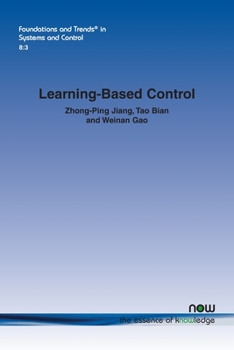Learning-Based Control: A Tutorial and Some Recent Results
The recent success of Reinforcement Learning and related methods can be attributed to several key factors. First, it is driven by reward signals obtained through the interaction with the environment. Second, it is closely related to the human learning behavior. Third, it has a solid mathematical foundation. Nonetheless, conventional Reinforcement Learning theory exhibits some shortcomings particularly in a continuous environment or in considering the stability and robustness of the controlled process. In this monograph, the authors build on Reinforcement Learning to present a learning-based approach for controlling dynamical systems from real-time data and review some major developments in this relatively young field. In doing so the authors develop a framework for learning-based control theory that shows how to learn directly suboptimal controllers from input-output data. There are three main challenges on the development of learning-based control. First, there is a need to generalize existing recursive methods. Second, as a fundamental difference between learning-based control and Reinforcement Learning, stability and robustness are important issues that must be addressed for the safety-critical engineering systems such as self-driving cars. Third, data efficiency of Reinforcement Learning algorithms need be addressed for safety-critical engineering systems. This monograph provides the reader with an accessible primer on a new direction in control theory still in its infancy, namely Learning-Based Control Theory, that is closely tied to the literature of safe Reinforcement Learning and Adaptive Dynamic Programming.
Format:Paperback
Language:English
ISBN:1680837524
ISBN13:9781680837520
Release Date:December 2020
Publisher:Now Publishers
Length:120 Pages
Weight:0.40 lbs.
Dimensions:0.3" x 6.1" x 9.2"
Customer Reviews
0 rating





